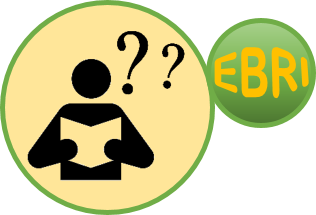
WIOA specifies that “the essential components of reading instruction” be incorporated into instruction. Learn how to administer and interpret diagnostic reading assessments for adult learners, how to build individual reading profiles, and how to use this information to plan effective evidence-based reading instruction.
- ELA teachers of GLE 0–3 and 9–12 (for GLE 4–8, see http://sabes.org/star)
- Program staff involved with assessing the reading levels of the adult learners
- Anyone who wants to take further EBRI PD offerings
This professional development activity/course is designed for:
EBRI: Diagnostic Assessments of Reading focuses on diagnostic assessment of adult learners' reading strengths and instructional needs. The strategies presented will also help students who are struggling or who have learning challenges.
EBRI, evidence-based reading instruction, is a set of practices, grounded in research and professional wisdom, for teaching the four essential components of reading (alphabetics, fluency, vocabulary, and comprehension) to adult learners. This PD offering is a prerequisite for all further EBRI trainings.
Please note: Previous completion of or current enrollment in STAR trainings fulfills the prerequisite for further EBRI trainings.
This 11-hour PD offering consists of online modules, a practicum, and a live webinar. Completion of all three components is required in order to receive any PD hours. While this training is not eligible for PDPs by itself, it may be bundled with other EBRI opportunities to earn PDPs.
(1) The course opens October 9th with 6 hours of online, self-paced modules over two weeks, which cover:
- The relationship between diagnostic assessment and EBRI
- Administering free individual assessments in alphabetics, fluency, and vocabulary
- Using learners’ diagnostic reading profiles to determine their strengths and instructional needs (i.e., which components to emphasize and at what level)
(2) Over the next two weeks, complete the practicum (about 3 hours); post report by Nov. 6th
- Administer a background questionnaire and the above assessments in alphabetics, fluency, and vocabulary to one ABE learner;
- Using these results and the learner’s MAPT score for comprehension, build a Reading Profile Report that covers the learner’s assessment scores, a summary of the learner’s background questionnaire, a summary of the learner’s strengths and needs in reading, and suggestions for what materials to use and at what levels. The trainer will provide individual written feedback on each participant’s report.
(3) In the closing live webinar (2 hours) with the trainer on Nov. 30th, participants will:
- Present assessments and learner profiles
- Discuss the various learner profiles with the group, and share assessment experiences and insights
- Discuss some of the challenges faced in implementing diagnostic assessments, and some possible solutions to those challenges
- Explain why diagnostic assessment is critical to EBRI
- Administer and interpret diagnostic assessments in alphabetics, fluency, and vocabulary
- Create a learner's reading profile, based on assessment results and the learner's MAPT reading score
- Summarize the assessment results to inform classroom groupings and instruction
Upon completion of this professional development activity/course, you will be able to:
- Required: Overview of Evidence-Based Reading Instruction. Current dates and registration information are at the ELA PD Events page. NOTE: Previous completion of or current enrollment in the STAR training fulfills this requirement.
- Recommended: The Recipe for Success: The CCRSAE and Instructional Shifts for ELA.
- As with all ELA PD, you may find it useful to view this 19-minute video introducing the CCRSAE for ELA.
BlackBoard (online)
United States


